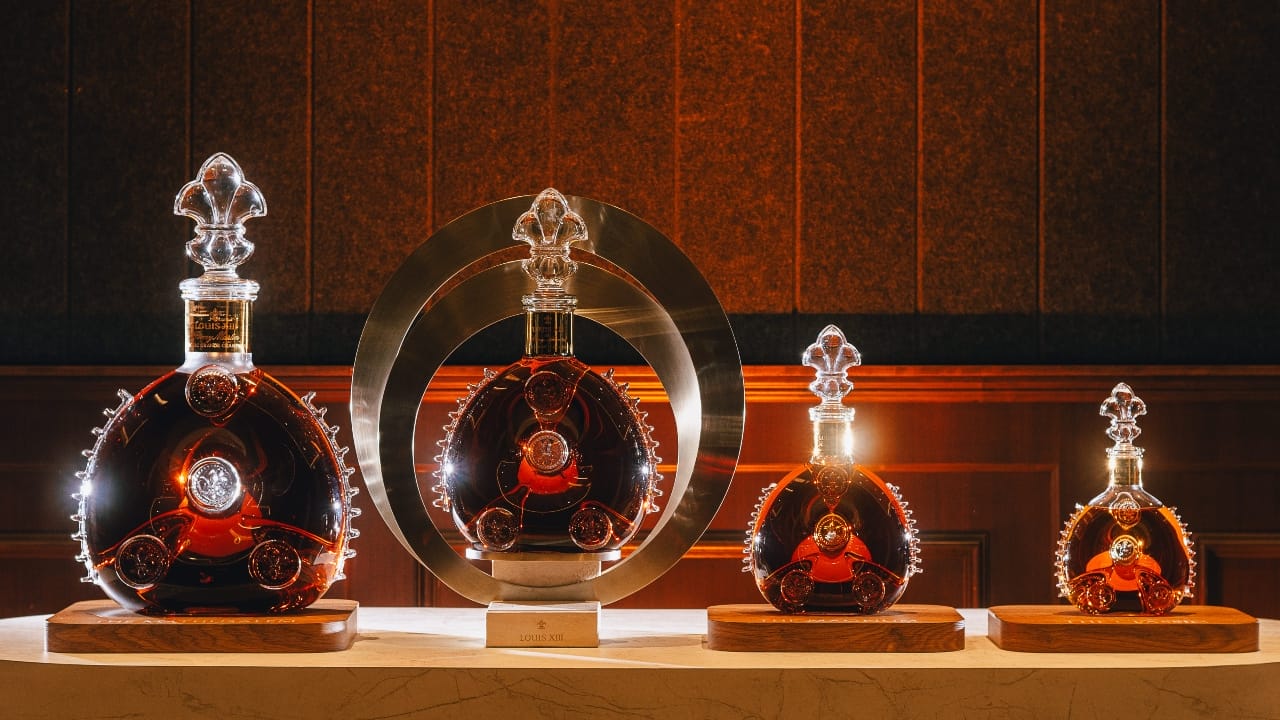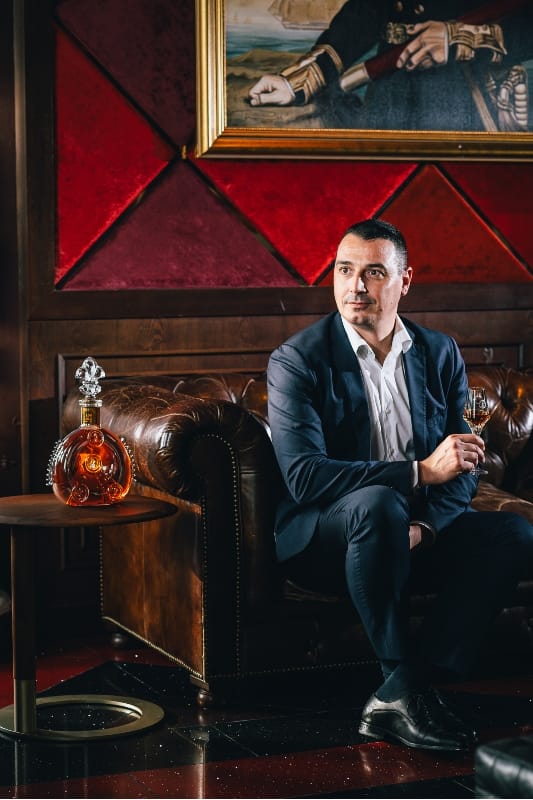Baptiste Loiseau, Louis XIII Cellar Master, On Guarding The Legacy Of The King Of Cognacs And The Joy Of Discovering The Rare Cask 42.1
Louis XIII’s youngest-ever Cellar Master blends tradition, emotion and sustainability to preserve the luxury cognac for current and future generations.

It would seem that Baptiste Loiseau was born for the role of Louis XIII Cellar Master, by having Cognac as his birthplace and with a fitting last name. The 44-year-old famously became the youngest cellar master in the history of Louis XIII back in 2014 and, like Saint Peter holding the keys to heaven, Loiseau is the gatekeeper of divine access to the exquisite luxury cognac. Last year, the French native celebrated 10 years on the job, while Louis XIII commemorated its 150th anniversary, solidifying its position as the true King of Cognacs.
Timeless Influence

Despite its rich sesquicentennial legacy, ‘Louie Trez’, as it is known, relentlessly pursues excellence, and continues to captivate a new generation of cognac enthusiasts in the 21st century. Time is interwoven with each precious drop of the cognac, made up of hundreds and hundreds of individual finest eaux-de-vie from Grande Champagne aged up to 100 years, each distilled and selected at different times in history.
“Even the younger generations appreciate something that requires time and craftsmanship, because you can now have everything really rapidly,” Loiseau explains. “With Louis XIII, it’s all about the transmission of generations from one Cellar Master to the next.”
Cognac’s Best-Kept Secret’

At the beginning of Coca-Cola’s history, its formula was kept a close secret, shared only with a small group, and not written down. Similarly, the art of selecting the eaux-de-vie was something that Loiseau inherited from his predecessor and mentor, Pierrette Trichet, and previously, for safety reasons, should something happen to either of them during the transmission period (perish the thought), the two did not even travel together.
“It took me seven years of working with her to understand the style of the house of Rémy Martin,” Loiseau says. “It’s crucial during the selection process that I’m not tasting on my own, and we have a tasting committee of 17 people. And there are only three people in the company who can make the selection of the eaux-de-vie. It’s a huge responsibility. But even if something happens to me, the house will be safe.”
The Crown Jewel

Although any bottle of Louis XIII is extraordinary on its own, the limited-edition Rare Cask 42.1 is its ultimate expression and is only the third Rare Cask uncovered by a Cellar Master in the house’s history.
Having started out in his career as an agronomist and oenologist, Loiseau says: “As I came from a scientific world, I tried to understand what went on during the winemaking process, the science of the soil, and more—so I occasionally struggled to find the answers to all the questions. But Trichet advised me, ‘You are not always going to find the answers, so just welcome a Rare Cask as news that what nature and time create has to be highlighted on its own.”
The advice that Trichet gave him, about letting himself go from time to time and letting emotions lead his decisions, was the biggest moment that Loiseau had in the past 10 years.
“The best moment that I understood that was when I uncovered the Rare Cask 42.1, because I was much more in tune with my emotions than the techniques,” he says. “It took me back to memories of my childhood of being in my grandfather’s garden, and it was the first time I discovered that just one blend of something that is exceptional in the Louis XIII universe can take you back to a place that doesn’t exist anymore but still lies in your subconscious.”
The Road Ahead

Coming from an agronomic background, Loiseau has always been passionate about implementing sustainability measures. The House has adapted to various challenges through the decades, and it knows that more are inevitable in the decades to come.
“For now, the biggest project that we are running on the Rémy Martin’s estate and with some growers is a new cultivar in the fields, because Ugni Blanc, which is the main one we have in the Cognac region, may not be the best one in the upcoming decades because of climate change,” the 45-year-old says. “Therefore, we are already working on new cultivars to see if the quality of the grapes, wine and eaux-de-vie after ageing will correspond to the quality we are looking for.
“We are also implementing trials on new ecological practices to have cover crops in the vineyards and to reduce our footprint in terms of products we use to prevent diseases,” Loiseau adds. “It’s always a question of how to reduce our impact on the environment, and it’s risky to innovate, but it’s part of Rémy Martin’s DNA, and we know how to do it.
“Everyone’s first taste of the Louis XIII cognac is a once-in-a-lifetime moment that you cherish forever and, for me, is something meaningful even for the current and future generations.”
Photography by Norlman Lo












